Agriculture, a fundamental aspect of human society, is currently undergoing a significant transformation thanks to newly emerged agricultural technology trends. These innovations are providing farmers with the tools to grow crops more efficiently, precisely and sustainably.
According to ResearchAndMarkets, the global agriculture market has seen significant expansion, jumping from US$12.245 billion in 2022 to US$13.398 billion in 2023, with an impressive annual increase rate of 9.4%.
Projections suggest that this upward trend will continue, reaching an estimated US$19.007 billion by 2027.
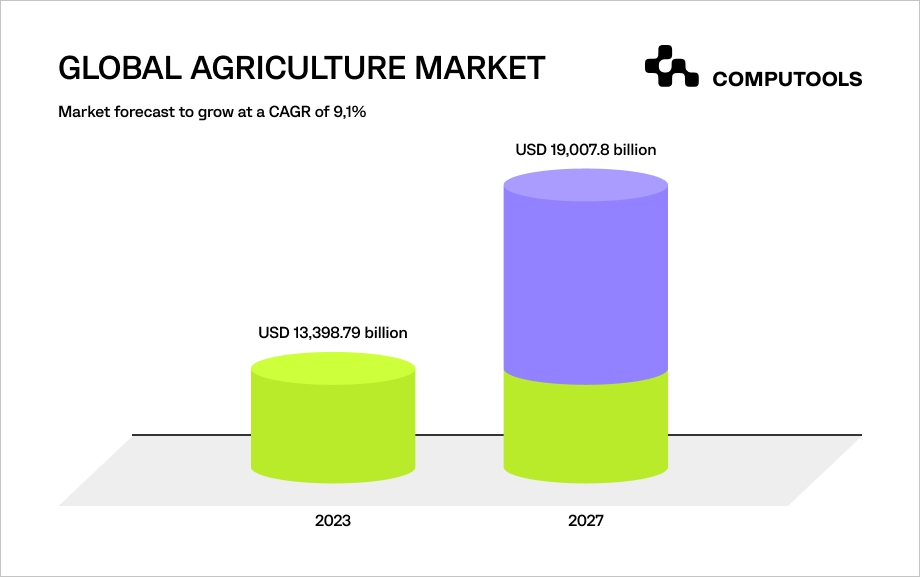
Despite experiencing substantial growth, the global agriculture sector is facing various challenges on multiple fronts.
One major issue stems from the global population surpassing eight billion in November 2022, increasing the demand for more food production. Agtech IT services are emerging as game-changers, offering solutions like precision agriculture and smart farming.
These technologies are vital for optimising crop yields and resource management, especially as climate change causes shifts in crop viability.
At the same time, the agriculture sector is grappling with a labour shortage, with a noticeable 52% decline in hired farm workers.
Robotic systems and industry automation are practical solutions, reducing reliance on manual labour. These autonomous machines, designed for tasks like planting and harvesting, not only address the shortage but also make farming more attractive and efficient, especially for the younger generation.
As you can see, adopting agtech becomes essential. This technological wave aims to enhance productivity and pave the way for a resilient and sustainable future.
The overall goal is to ensure food security for a growing global population while simultaneously addressing the impacts of climate change and optimising the use of resources.
In this article, we’ll discuss modern agriculture tech trends transforming the industry worldwide. Adopting these innovations may not only increase your business efficiency but also make a huge impact on the world population.
10 Agriculture Technology Trends for 2024
1. Drone Technology
Drones have become indispensable tools for the next generation of farms, providing agribusiness software solutions to longstanding challenges.
Developers are making swift progress to meet growers’ demands. In 2023, drones come in diverse shapes and sizes, equipped with variable packages tailored for specific agricultural tasks.
• Scouting drones provide a simple and beginner-friendly approach, offering a bird’s eye view of fields. Modern variants are equipped with sensors to monitor weather, moisture, heat and more.
• Spraying drones disperse pesticides. Smaller drones cover 10 to 12 acres per hour with precise spot treatments, while larger models claim effectiveness over 40 to 50 acres.
• Spreading drones spread fertiliser, cover crop seeds and more. With impressive load-carrying capacity, some models can transport up to 115 pounds of granular material.
• Security drones offer an elevated perspective to identify pests, predators or invasive plants, contributing to farm security. Livestock farmers benefit from locating stray animals, highlighting the multifaceted role drones play in enhancing monitoring and security measures.
• Crop health drones capture diverse data points about crop rows. Providing crucial insights into soil and water levels, these drones offer precise measurements of plant growth rates while screening for diseases.
In essence, drones are changing the game in agriculture, bringing efficiency, precision and sustainability to the modern farm.
2. Digital Twins
A digital twin is a virtual representation of a physical product or process that allows researchers and designers to experiment as if interacting with the real counterpart.
Enhanced by real-time or historical data inputs, digital twins offer significant advantages, especially in agtech, where they streamline complex system development using vast datasets.
Digital twin software for the agriculture industry plays a vital role in testing variables like soil types and weather conditions, providing valuable insights for successful field trials.
Twins also address data gaps by generating synthetic data to fill in missing information caused by errors or geographical limitations.
Overall, digital twins enhance efficiency and safety in the development and validation of agricultural innovations.
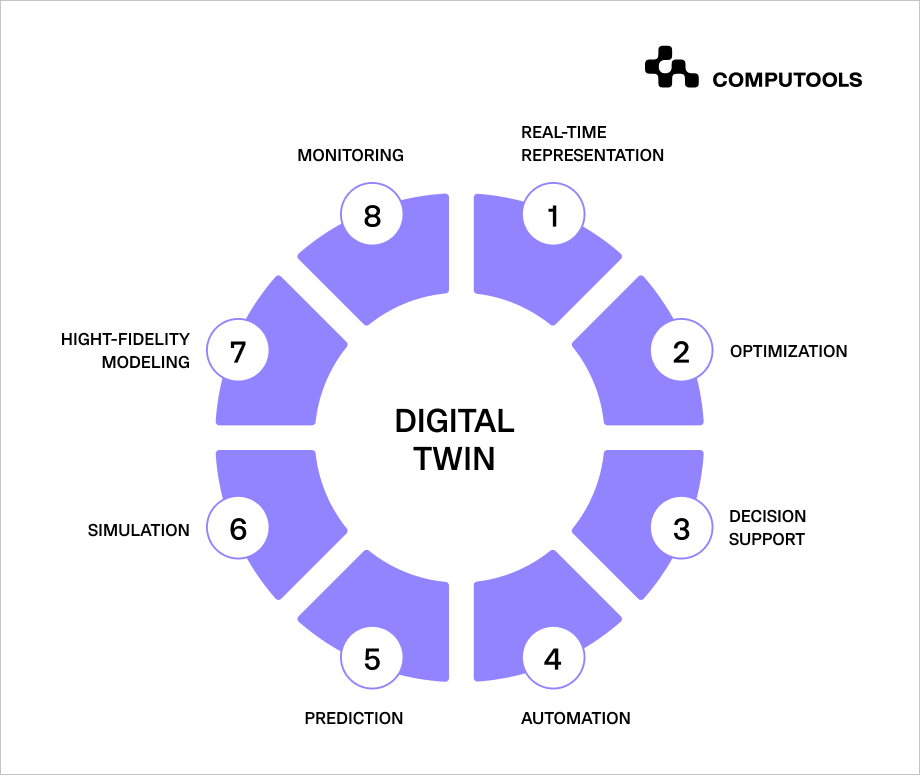
3. Internet of Things
Traditional methods of crop and field monitoring are resource intensive, requiring significant labour, physical equipment and time. However, the advent of the Internet of Things presents a revolutionary alternative.
IoT agronomy software, equipped with various sensors, collects and transmits real-time data through mobile applications, edge devices or alternative channels.
These sensors perform a range of tasks, such as monitoring ground temperature, water level, livestock conditions, and plant health. IoT also simplifies remote monitoring, providing farmers with increased convenience.
In addition, IoT-powered irrigation systems incorporate sensors for automated crop watering. These sensors include soil moisture and rainfall sensors.
Forward-thinking start-ups are at the forefront of developing sensor solutions that seamlessly integrate IoT technology with drones, robots and computer imaging.
This integration not only enhances farming precision but also improves agility and responsiveness, offering timely alerts for areas that require attention.
Overall, the implementation of IoT in agriculture is transforming traditional monitoring practices, making them more efficient, data-driven and responsive to the needs of modern farming.
Learn more about agriculture software development.
Contact us →4. Robotic Systems
The primary purpose of agricultural robots is to automate repetitive field chores, providing a solution to the ongoing labour shortage. These tasks span from fruit harvesting, transplanting and sowing to cultivating.
As estimated by MarketsAndMarkets, in 2023, the market for agricultural robots is valued at approximately $US13.5 billion. The forecast suggests that by 2028, the agricultural robots market is anticipated to surge to $US40.1 billion.
This sector presents a dynamic landscape teeming with significant potential, positioned to reshape the agricultural industry.
Farmers are increasingly adopting intelligent machinery, including autonomous tractors equipped with auto-steer technology.
Robotic agriculture software solutions play a crucial role in streamlining harvesting and navigation processes, offering a more efficient and precise approach.
Beyond field operations, robots are finding utility in automated livestock management systems. These systems handle tasks such as measuring, feeding and milking.
The integration of robots into farm operations serves to enhance overall productivity, reduce human errors and, ultimately, elevate farming efficiency.
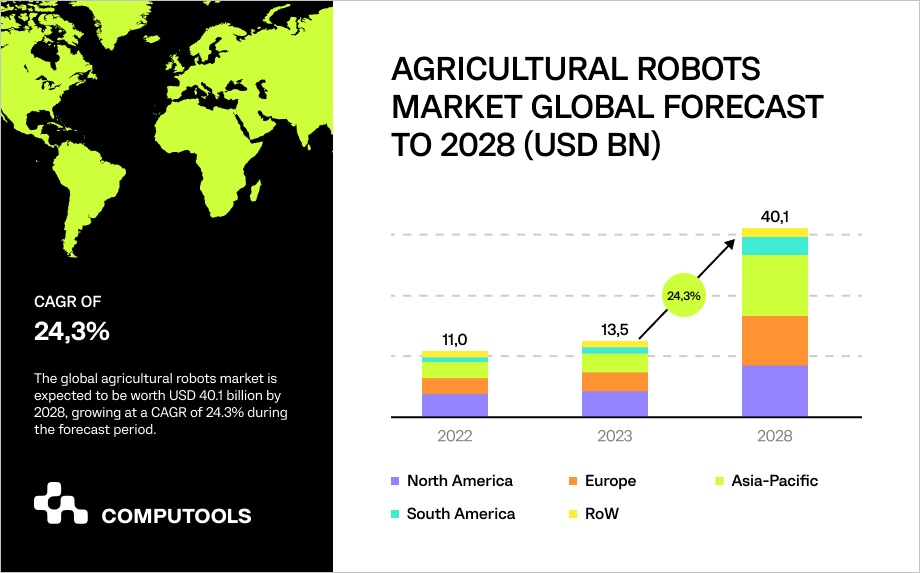
5. Precision Agriculture
Exploring the cutting-edge realm of agriculture software development, the term ‘precision farming’ encompasses the integration of technologies such as IoT, AI, VR, sensors, robotics and big data to automate diverse farming operations.
The excitement about this technological advancement is well-justified, considering the numerous benefits that precision agriculture offers.
These advantages encompass a significant boost in crop yield, optimisation of resource utilisation and noteworthy reductions in operational costs.
6. Mobile Apps
The agriculture sector is currently undergoing a significant transformation driven by the widespread adoption of automation and new farming technology.
These tools include management software, digital marketing services and decision-making models that utilise diverse data sources and integration levels. The rise of mobile applications contributes to consolidating all these innovative solutions into one compact form.
Mobile apps play a crucial role in improving various aspects of agriculture. For example, they help increase income by reducing transaction costs related to supply and distribution.
Additionally, mobile apps contribute to enhanced traceability for consumers.
The landscape of smartphone apps in agriculture is continually expanding, offering a variety of options. Success in this dynamic market depends on identifying the right niche within the growing array of mobile applications.
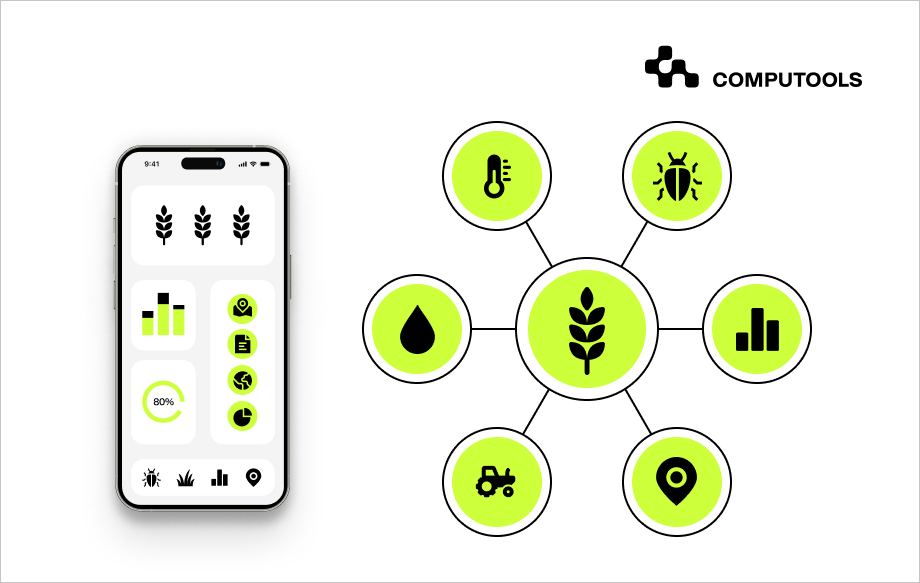
7. Agricultural Biotechnology
While chemicals have been a popular solution for crop productivity suffering from pests, they don’t align with sustainability regulations. Instead, biotechnology provides a way to improve crop and livestock quality.
Newly emerged methods such as plant breeding and engineering help identify and enhance desirable traits in plants.
The genome editing agriculture technology trends, known for their precision and speed, allow for precise trait modification.
By using these innovative biotech solutions, we can create plants with increased disease tolerance, resilience against pests, and the potential for high yields. This, in turn, boosts farm profitability.
Emerging companies are also using agri-biotech techniques to offer sustainable solutions like biopesticides. These products not only address soil toxicity issues but also minimise their overall environmental impact.
8. Data Analytics
Essential information for upcoming farming seasons includes metrics related to crop area, irrigation, pricing system, weather forecasts, and crop health.
To make sense of this data, farmers use advanced agriculture tech trends like big data analytics, examining factors such as weather events, equipment, water systems, product quality and quantity.
This data-driven approach enables farmers to uncover hidden patterns and connections in the information.
For example, farm analytics offers insights into ground nutrient levels and fertiliser needs, allowing farmers to make informed decisions based on data for better agricultural practices.
9. Artificial Intelligence
Artificial intelligence is a rapidly developing trend in agriculture that incorporates machine learning, computer vision, and other technologies.
According to the Data Bridge Market Research, AI in agriculture is expected to grow from US$1.7 billion in 2023 to an estimated US$4.65 billion by 2030. Its applications span data management workflows, revolutionising the way farmers handle information.
In practical terms, AI is instrumental in converting non-digital and unstructured data, gathered by IoT devices, into organised digital data for advanced analysis.
AI also emerges as a key player in addressing challenges relating to natural resource depletion due to overconsumption and waste.
Farmers can harness AI to establish more sustainable practices. For instance, AI algorithms, fuelled by predictive analytics using historical and real-time data, can predict weather patterns and monitor soil and crops.
In essence, the integration of artificial intelligence into agriculture represents a transformative force, offering innovative solutions and ushering in a more sustainable and efficient future.
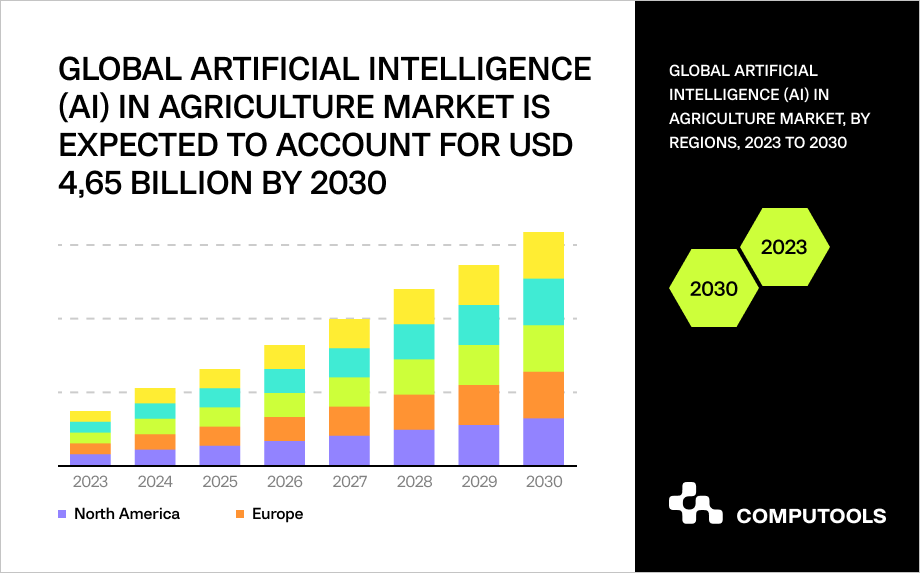
10. Farm Management Software
The larger the farm, the more challenging it becomes to oversee every operation. However, in the era of software as a service (SaaS), a solution exists for almost every challenge – including farm management.
Farm software serves as an integrated platform that offers real-time data and information, akin to a digital checklist, aiding farmers in tracking daily activities.
Through this software for monitoring and reporting, farmers can enhance decision-making across all their operations.
This technological advancement in agriculture is set to progress even further as internet-enabled devices become more widespread.
The Future of Agtech
Looking ahead to the future of agtech beyond 2024, it’s clear that it’s not just about technological advancements. The focus extends to making agriculture more sustainable, socially responsible and resource-efficient.
This transformation seeks a delicate balance between technological innovation and environmental responsibility, with a particular emphasis on adherence to emerging ESG regulations.
In the coming decade, ecosystems will undergo a comprehensive transformation, adopting holistic management principles that go beyond crops to include responsible care for livestock, water resources and soil health.
Agricultural advancements will play a leading role in coordinating these interconnected elements to promote more efficient farming algorithms.
Simultaneously, agtech is set to actively embrace climate-adaptive farming technologies. By using technology to navigate changing climate conditions, the industry aims to ensure resilience against unpredictable weather patterns and natural disasters.
As agtech continues to mature, we also anticipate an active transformation in regulatory frameworks. Governments and institutions are expected to play a more proactive role by providing support and incentives for the adoption of innovation in agriculture.
This proactive approach includes adjusting regulations to promote the seamless integration of eco-friendly technologies.
According to Deloitte, techniques such as conservation tillage, cover cropping and integrated pest management will continue to take centre stage in the future.
These practices actively reduce reliance on synthetic fertilisers and pesticides. Additionally, regenerative agriculture, with a focus on improving soil health and overall ecosystem well-being, will also gain more popularity.
Conclusion
Agriculture software development, with its ever-growing abilities, is not only solving current issues in farming but also bringing real advantages to both farmers and consumers globally.
This involves cutting expenses, enhancing the return on investment, promoting sustainable growth by lessening the burden on resources, and increasing the availability and affordability of food.
The incorporation of these technological advancements marks a pivotal era for agriculture, aligning with both environmental sustainability and economic viability.
If you’re interested in learning how agtech trends can enhance your business practices, feel free to reach out to us at info@computools.com for a consultation.











Computools was selected through an RFP process. They were shortlisted and selected from between 5 other suppliers. Computools has worked thoroughly and timely to solve all security issues and launch as agreed. Their expertise is impressive.